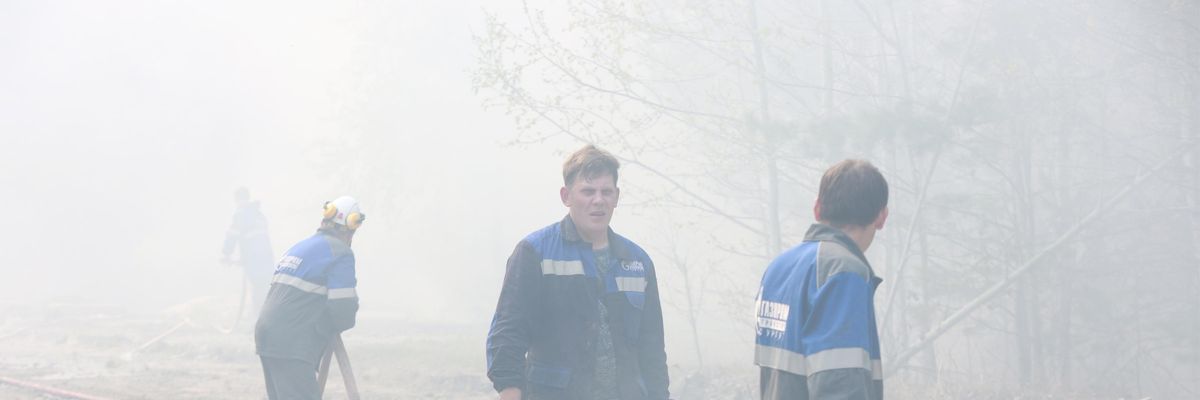A monitoring service warned Wednesday that the Siberian city of Yakutsk is experiencing an "airpocalypse" as devastating wildfires engulf the typically frigid--but, thanks to the climate crisis, increasingly warm--region in toxic smoke.
Throughout late Wednesday afternoon and early evening local time, according to Plume Labs, air quality in Yakutsk ranged from "dire" to "extreme" to "airpocalypse," categories that indicate dangerous levels of pollutants in the atmosphere. Earlier this week, Yakutsk was forced to suspend flights at its airport due to poor visibility.
"High levels of particulate matter and possibly also chemicals including ozone, benzene, and hydrogen cyanide are thought likely to make this one of the world's worst ever air pollution events," The Guardian reported, referring to the fires that have scorched 3.7 million acres of land in northeastern Siberia in recent days.
Alexey Yaroshenko, head of the forest department at Greenpeace Russia, told the U.K.-based newspaper that "for many years, propaganda has made people think that the climate crisis is a fiction, and if not fiction, that it will only benefit Russia, since it will become warmer and more comfortable."
"Now the situation is starting to change," said Yaroshenko. "Little by little, people are beginning to understand that the climate is really changing, and the consequences are really catastrophic. But the majority of society and the majority of politicians are still very far from understanding the real scale of the problem."
Aysen Nikolayev, governor of Siberia's Yakutia region, told reporters over the weekend that "the situation with wildfires in our republic is very difficult."
"We are experiencing the driest summer in the past 150 years in Yakutia, and the month of June was the hottest on record," said Nikolayev. "This, together with the dry thunderstorms that occur nearly daily in our republic, brought about significant wildfires."
Speaking to the Associated Press, one local resident said that "we can't see each other because of the smoke, our eyes are burning, and overall the smoke is very dangerous for the health of us villagers."
"We see on television planes that are dropping water on the burning forest but they aren't sending these planes to help us for some reason," he added. "Why is there no help?"
The latest wildfires mark the third consecutive year that Siberia has been ravaged by historic blazes, which scientists have attributed to dramatic warming fueled by the human-caused climate crisis.
"Last year, the record-setting fires in the remote Siberian region of Yakutia released roughly as much carbon dioxide as did all the fuel consumption in Mexico in 2018," the New York Times reported late last week. "On some days this month, thick smoke hung over the capital, Yakutsk, the coldest city in the world, making residents' eyes water and scraping their throats. Outside the city, villagers are consumed by the battle with fire, shoveling trenches to keep it away from their homes and fields, quenching their thirst by digging up the ice sheets embedded in the ground."




